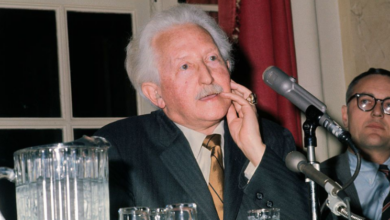- Piaget's theory emphasizes that children learn through natural curiosity and their experiences in the world.
- Children progress through specific developmental stages in a set order, though timing varies per individual.
- Kids are active learners, constructing complex mental structures to understand their surroundings.
- Basic concepts include schemas, which are mental frameworks, and processes of assimilation and accommodation.
- Piaget's four stages: Sensorimotor, Preoperational, Concrete Operational, and Formal Operational, highlight different cognitive abilities at each stage.
Jean Piaget’s theory of cognitive development is a big deal in the world of child development. Piaget, who lived from 1896 to 1980, believed that kids grow and learn because of both their natural desire to understand the world and the experiences they have.
Piaget’s theory says kids go through specific stages of development in a set order. Unlike other theories that tie these stages to specific ages, Piaget’s idea is that the order of these stages is the same for all kids, even if they reach them at different times.
One key part of Piaget’s theory is that kids are active learners. They’re not just soaking up information from adults or their environment; they’re exploring, experimenting, and figuring things out on their own. As they do this, they build complex mental structures to understand their surroundings better.
Basic Concepts
The Schema A schema is like a mental framework that helps kids understand the world. For example, when a child learns what an apple is, they create a mental idea or scheme for apples. As they encounter new experiences, they adjust their schemas to make sense of them.
Assimilation and Accommodation When kids encounter something new, they first try to fit it into their existing schemas (assimilation). If it doesn’t fit, they change their schema (accommodation). For example, if a child calls an orange an “apple” because it’s round, they will adjust their understanding once they learn the difference.
The Stages of Cognitive Development
Piaget’s theory includes four stages of cognitive development:
1. Sensorimotor Stage (Birth to 2 Years) In this stage, babies learn about the world through their senses and actions. They start with basic reflexes and gradually learn to interact with objects more purposefully. By the end of this stage, they understand that objects still exist even when they can’t see them (object permanence).
2. Preoperational Stage (2 to 7 Years) During this stage, children develop language and start to use symbols, like words and images, to represent objects. They engage in pretend play but struggle with logic and taking other people’s perspectives (egocentrism). They also have trouble understanding that changing an object’s appearance doesn’t change its basic properties (conservation).
3. Concrete Operational Stage (7 to 11 Years) In this stage, kids start thinking logically about concrete events. They understand conservation and can organize objects into categories and order them by size or number. They also become less egocentric and can consider other people’s viewpoints.
4. Formal Operational Stage (11 Years and Up) In the final stage, children develop the ability to think abstractly. They can solve hypothetical problems and think about concepts that don’t have a physical form. This stage is crucial for understanding complex subjects in school.
Critiques of Piaget’s Theory
Some critics say Piaget’s stages are too rigid and don’t account for the wide range of abilities kids show. They also argue that he underestimated what young children can do and overestimated the abilities of older kids. Additionally, critics point out that Piaget didn’t consider how culture and specific experiences shape cognitive development.
Despite these criticisms, Piaget’s work has had a huge impact on education, emphasizing that children learn best through active engagement and discovery. While not everyone follows the stages exactly as Piaget described, his theory provides a useful framework for understanding how children develop and learn.

